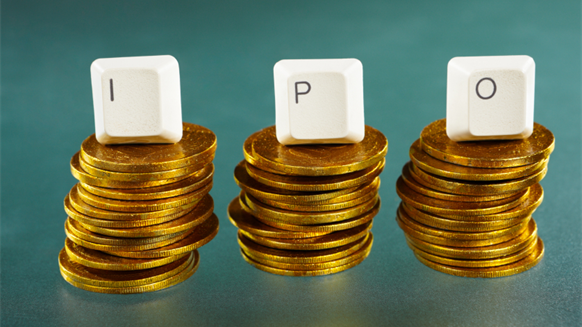Gadfly: Anything Saudi Aramco Can Do, Royal Dutch Shell Can Too

This opinion piece presents the opinions of the authors.
It does not necessarily reflect the views of Rigzone.
(Bloomberg) - Cheap oil crimping your spending plans? Sitting on a bunch of valuable upstream oil assets that could be monetized? How about a mammoth IPO? No, not Saudi Arabia. I'm talking about Royal Dutch Shell.
Shell is Europe's third-biggest company by market value. But after the $54 billion acquisition of BG Group, its net debt is by far the largest: an eye-watering $70 billion.
The Anglo-Dutch company says debt is likely "to go up before it goes down" and its reduction is "priority number one". With credit-rating agencies on its case, Shell has to deliver on a pledge to divest $30 billion of non-core assets within three years.
But that's some promise. While there are buyers out there for downstream refining units, it makes more sense for Shell to keep hold of most of them because they make profits. It's much harder to shift cash-hungry exploration and production assets when oil is about $45 a barrel. Buyers and sellers are simply too far apart on price.
So why not bypass trade buyers and private equity altogether by hiving off older upstream businesses into a new listed company? Exane analyst Aneek Haq believes an IPO of Shell's more mature assets -- spanning places like the U.K., Netherlands, Norway, Malaysia and New Zealand -- would let management focus on the core integrated gas and deepwater operations.
Unlike a straight divestment, an IPO would let Shell benefit from any recovery in valuations if crude prices did make a sustained recovery.
In a new company, non-core assets wouldn't have to fight with Shell's other units for investment, meaning a new leadership might extract more value.
Haq says a spin-off could be valued at as much as $50 billion and that investors might bite if Shell chucked in some juicy onshore assets in Nigeria and Kazakhstan. Shell also has some form here (even if on a different scale altogether). In 2014, it raised $920 million spinning off Shell Midstream Partners, a collection of US pipeline assets.
Speaking to analysts last week, director Simon Henry said an upstream IPO might not be especially attractive with oil prices where they are. But neither did he dismiss the idea:
"The focus on simplifying the upstream, why not IPO part of it or otherwise? Yeah, why not?... There are no prima facie reasons why we wouldn't look at such a monetization route if that were the best way to create value."
Of course, there would be plenty of obstacles. Investors might view a pile of Shell cast-offs as at best a hodgepodge or, worse, a bad bank. It certainly wouldn't be easy to lump these assets together and create a compelling growth story.
Yet even if a wholesale clear-out is too much of a long-shot, that doesn't mean Shell shouldn't tap equity investors to shift smaller collections of assets. For example, Shell should consider re-floating its Canadian oil sands business, according to Macquarie analyst Iain Reid. Some of Shell's storage units and pipelines might also interest pension funds and insurers seeking steady infrastructure returns.
For now, it's probably sensible of Shell to carry on its $30 billion divestment program in the hope that oil prices keep edging higher, letting it extract better prices. But the crude recovery is still in its infancy and if there's any reversal, Shell will need to be more radical. Low oil prices aren't stopping Saudi Aramco from testing equity markets. They shouldn't stop Shell either.
12
View Full Article
WHAT DO YOU THINK?
Generated by readers, the comments included herein do not reflect the views and opinions of Rigzone. All comments are subject to editorial review. Off-topic, inappropriate or insulting comments will be removed.
- How Likely Is an All-Out War in the Middle East Involving the USA?
- Rooftop Solar Now 4th Largest Source of Electricity in Australia
- US Confirms Reimposition of Oil Sanctions against Venezuela
- EU, Industry Players Ink Charter to Meet Solar Energy Targets
- Analyst Says USA Influence on Middle East Seems to be Fading
- Russian Ships to Remain Banned from US Ports
- Brazil Court Reinstates Petrobras Chair to Divided Board
- EIB Lends $425.7 Million for Thuringia's Grid Upgrades
- Var Energi Confirms Oil Discovery in Ringhorne
- Seatrium, Shell Strengthen Floating Production Systems Collaboration
- An Already Bad Situation in the Red Sea Just Got Worse
- What's Next for Oil? Analysts Weigh In After Iran's Attack
- USA Regional Banks Dramatically Step Up Loans to Oil and Gas
- EIA Raises WTI Oil Price Forecasts
- How Likely Is an All-Out War in the Middle East Involving the USA?
- Venezuela Authorities Arrest Two Senior Energy Officials
- Namibia Expects FID on Potential Major Oil Discovery by Yearend
- Oil Markets Were Already Positioned for Iran Attack
- Is The Iran Nuclear Deal Revival Project Dead?
- Petrobras Chairman Suspended
- Oil and Gas Executives Predict WTI Oil Price
- An Already Bad Situation in the Red Sea Just Got Worse
- New China Climate Chief Says Fossil Fuels Must Keep a Role
- Oil and Gas Execs Reveal Where They See Henry Hub Price Heading
- Equinor Makes Discovery in North Sea
- Macquarie Strategists Warn of Large Oil Price Correction
- DOI Announces Proposal for Second GOM Offshore Wind Auction
- Standard Chartered Reiterates $94 Brent Call
- Chevron, Hess Confident Embattled Merger Will Close Mid-2024
- Analysts Flag 'Remarkable Feature' of 2024 Oil Price Rally


